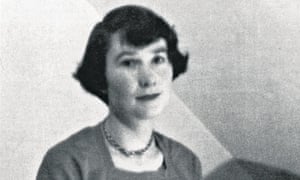 |
| 'How beautiful you were, and near, and young,' Larkin wrote of Winifred Dawson |
Winifred Dawson obituary
Ann Thwaite
Thu 28 Aug 2014 15.34 BST
 |
| 'How beautiful you were, and near, and young,' Larkin wrote of Winifred Dawson |
Ann Thwaite
Thu 28 Aug 2014 15.34 BST
 |
| Simin Behbahani at a peace conference in Tehran in 2007.Credit... Photo by Morteza Nikoubazl |
In 2006, the Iranian authorities shut down an opposition newspaper for printing one of her works. In 2010, when she was 82 and nearly blind, she was barred from boarding a Paris-bound plane and interrogated through the night regarding poems she had written about Iran’s 2009 elections, which were considered fraudulent by government opponents.
“Stop this extravagance, this reckless throwing of my country to the wind,” she wrote in “Stop Throwing My Country to the Wind.” The poem ended:
You may wish to have me burned, or decide to stone me
But in your hand match or stone will lose their power to harm me.
In a 2011 video message to the Iranian people in celebration of the Persian New Year, President Obama said Ms. Behbahani’s “words have moved the world” and quoted a poem she wrote in 1982, “My Country, I Will Build You Again”: “Old I may be, but given the chance, I will learn.”
Fittingly, it was poetry that brought her parents together.
Her mother, Fakhr-e Ozma Arghun, had sent a poem she wrote to a magazine edited by Abbas Khalili, a translator and poet himself. He liked the poem and was surprised to find it had been written by a woman. He said he wanted to marry the poet, whom he had not yet met.
He did marry her, but three days after their wedding he was arrested and exiled for articles that offended the ruling Pahlavi dynasty. He did not see his daughter — born Siminbar Khalili on July 20, 1927, in Tehran — until she was 14 months old, and did not see her again until she was 11.
In the meantime, the girl’s parents divorced. Simin’s mother raised her to love literature and, when Simin was 14, sent a poem Simin had written to a literary journal, which published it. In 1951, Ms. Behbahani published her first book of poems.
One of her first innovations was with the ghazal, a sonnetlike Persian poetic form. It had traditionally been written from the perspective of a male lover admiring a woman, but Ms. Behbahani made the woman the protagonist. She later used the ghazal form to write about all manner of subjects, including the Iran-Iraq war. She also used her skill in writing about love to compose lyrics for popular songs.
Ms. Behbahani studied to be a midwife before pursuing a law degree, which she earned but never used. She taught high school — physics and chemistry, then literature — for more than 20 years.
Among the many literary awards she won was, in 2013, the Janus Pannonius Poetry Prize from the Hungarian PEN Club, which carries a 50,000-euro prize and is sometimes called the Nobel Prize for poetry. She was twice nominated for the Nobel Prize in Literature.
Ms. Behbahani’s first marriage, to Hassan Behbahani, ended in divorce. Her second marriage, to Manuchehr Koushyar, ended with his death in 1984. She is survived by her sons, Ali and Hossein Behbahani; her daughter, Omid Behbahani; and several grandchildren.
Jahan News, a hard-line Iranian website, once characterized Ms. Behbahani’s writing as treasonous, saying, “Her poetry, with its slanderous and scandalous way of addressing Iranians, only serves to make Iran’s enemies happy.”
 |
| Hoja Illustration by Triunfo Arciniegas |
Maybe I’m a ‘sick part of a
sick thing’
maybe something
has caught up with me
certainly there is a
mist between us
I can barely
see you
but your hands
are two animals that push the
mist aside and touch me.